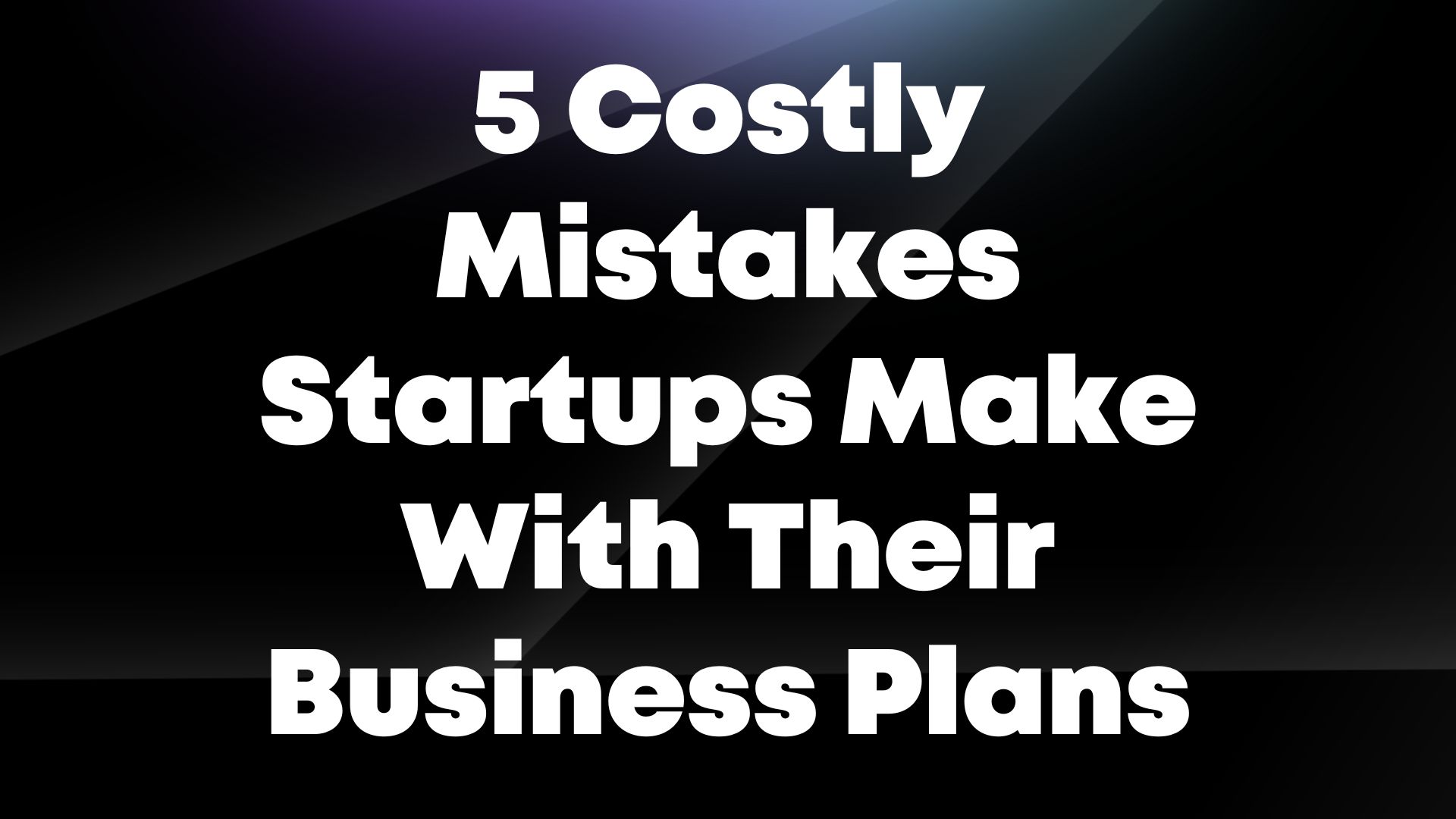5 Costly Mistakes Startups Make With Their Business Plans
Category: Business Planning
Tags: business plan mistakes, business plan problems, Business Plans
A business plan is essential for any startup. It’s a document that outlines your business goals, strategies, and how you plan on achieving them. However, many startups make costly mistakes when it comes to their business plans. Here are 5 of the most common mistakes:
1. Not Defining Their Target Market
One of the most common mistakes startups make is failing to define their target market. Your target market is the group of people most likely to use your product or service. Without knowing who your target market is, you’ll have a hard time creating effective marketing and sales strategies. As a result, you may end up wasting valuable resources trying to reach everyone instead of focusing on those who are most likely to convert.
2. Not Conducting Market Research
Another mistake many startups make is not conducting market research. Market research is essential for understanding your industry, competition, and target market. Without it, you’re essentially flying blind. You won’t know what your customers want or need and you won’t be able to develop effective marketing campaigns. As a result, you’ll likely miss out on important opportunities and may even find yourself struggling to survive in the long run.
3. Not Having a Clear Goal or Strategy
Another common mistake is not having a clear goal or strategy. Your business plan should outline your long-term goals and the steps you’ll take to achieve them. Without a clear goal or strategy, it will be difficult to measure your progress and determine whether or not you’re on track to meet your objectives. Additionally, without a goal or strategy, you may find yourself veering off course and wasting time and resources on activities that aren’t aligned with your overall mission.
4. Failing to Budget Properly
Many startups also fail to budget properly for their business plans. They either underestimate the costs associated with their businesses or mismanage their finances once they get started. As a result, they often run into financial trouble early on and have difficulty sustaining their businesses in the long run. If you’re not careful with your finances, you could find yourself in a situation where you’re forced to close your doors for good.
When discussing your budget for your business, if a business plan is completed, it would help you budget – this way you can know what your start costs will be, the operational costs – and will help you determine that what you may need “more funding” for.
This can also open doors to various government funding options, including government grants, government loans, and funding options that you may be eligible for.
Be sure to use the Funding Database to give yourself a try with the various options that mat be able to help you properly budget and plan your business’s financial sitatuion.
5. Not Getting Feedback
Finally, another mistake many startups make is not getting feedback on their business plans. It’s important to get input from others in order to improve your chances of success. Without feedback, you may miss out on important insights that could help you avoid costly mistakes and increase your chances of success.
If you’re a startup, make sure to avoid these costly mistakes when creating your business plan. By doing so, you’ll improve your chances of achieving your long-term goals and making your business a success.
Startups often make common mistakes when it comes to their business plans. By avoiding the five mistakes listed above, you’ll give yourself a better chance of success. Keep in mind that it’s important to get feedback from others so that you can improve your plan and increase your chances of achieving your goals. With a clear goal and strategy, good market research, and proper budgeting, you’re on the right track for launching a successful startup.
SEARCHES RELATED TO BUSINESS PLAN MISTAKES
I WANT START A BUSINESS IN...
IS THERE HELP IN MY INDUSTRY?
- Expansion Capital
- Funding For Equipment
- Business Acquisition Funding
- Consulting Services
- Hiring & Training Staff
- Management Support Services
- Manufacturing
- Mining
- Professional and IT Services
- Transportation and Warehousing
- Accommodation and Food Services
- Agriculture
- Construction
- Culture and Recreation
- Finance and Real Estate
- Forestry, Hunting and Fishing
- Health and Social Assistance





